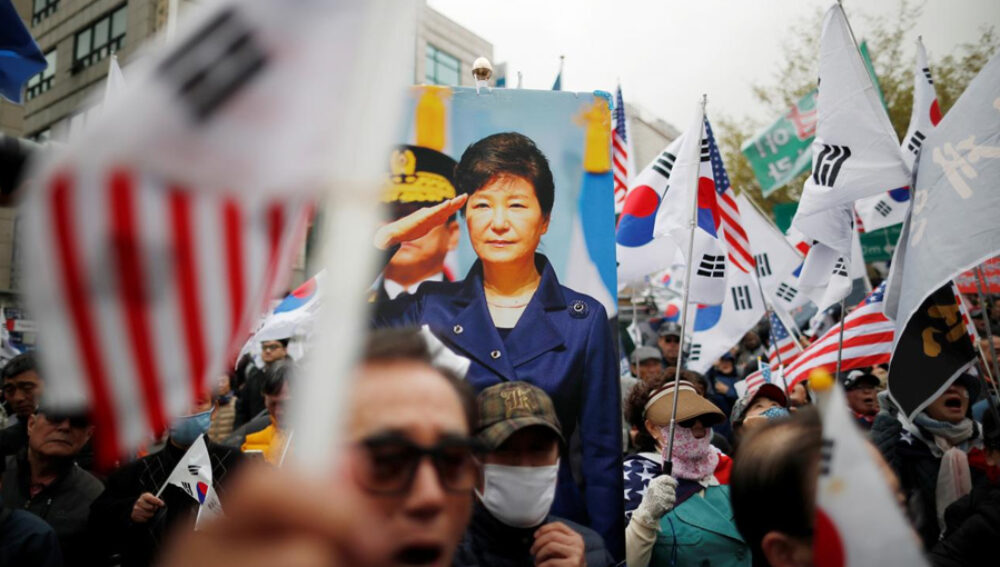Former South Korean president Park Geun-hye was sentenced to 24 years in jail on 6 April 2018, a little more than a year after her removal from office. Her victory in the 2012 presidential election indicated a return to the conservatism that had dominated South Korean politics since the Republic’s establishment in 1948. But her removal from the presidency has facilitated a raft of unconventional economic policies under a liberal government led by President Moon Jae-in.
The prosecution pressed 18 criminal charges against her, including bribery and abuse of power. A court sentenced Park’s confidante, Choi Soon-sil, to 20 years in jail on similar charges in February 2018. To discourage political corruption, the court sentenced Park heavily, even if the prosecution’s original request for a 30-year jail sentence seemed too harsh in the eyes of some.
The verdict marks the return of liberalism in South Korean politics and the decline of conservatism. A previous political scandal revolving around former president Lee Myung-bak, Park’s predecessor from the same political party, casts a further shadow over conservative politicians. Like Park, a prosecutor charged Lee for bribery and abuse of power. Most conservative politicians are concerned about a complete defeat in the June 2018 local elections for 17 municipal and provincial leaders. It may take conservative politicians a long time to regain support from voters.
Please click here to read the full “What Park’s sentence means for South Korea’s economy” article in the East Asia Forum, written by Griffith Asia Institute member, Dr Byung-Seong Min.








